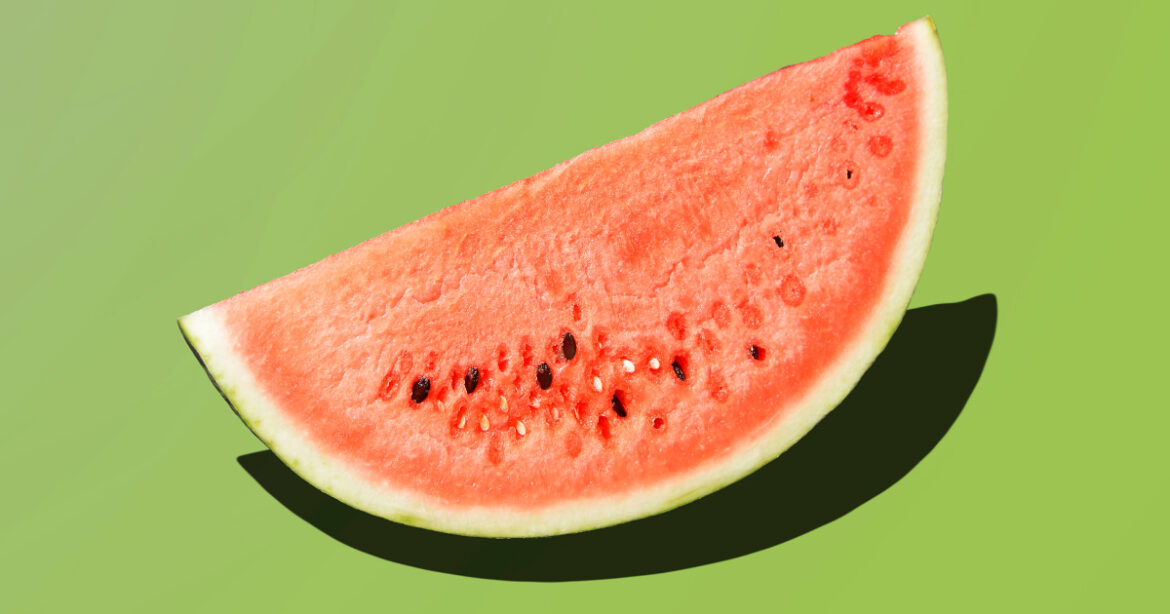Fruit can’t compete with red meat or eggs when it comes to iron content, but some fruits do contain the mineral essential for health.
The body needs iron to make hemoglobin, a protein in red blood cells, and certain hormones, the National Library of Medicine notes. Iron also supports healthy muscles, bone marrow and organ function, it adds.
“Fruits aren’t necessarily a good source of iron, but every bit of iron you eat does help you meet the recommended daily intake,” says registered dietitian Natalie Rizzo, nutrition editor for TODAY.
“Certain groups of people, like vegetarians, vegans and women who menstruate, are more prone to iron deficiency, so every bit counts.”
There are two types of iron in food. Heme iron, which comes from meat, is the most bioavailable form — meaning the body absorbs it well, Rizzo explains. Non-heme iron, which comes from plants, is less well absorbed.
Men need 8 milligrams of iron a day, while women of childbearing age need much more — 18 milligrams if they’re not pregnant or 27 milligrams if they’re carrying a child, according to the National Institutes of Health.
The recommended daily amount of iron is almost double for vegetarians and vegans to make up for the difference in absorption between heme and non-heme iron, Rizzo says.
Iron deficiency is “not uncommon” in the U.S., especially among young children, women under 50 and pregnant women, the NIH notes.
Symptoms include weakness, tiredness, lack of energy, brain fog and hair loss. Some people require iron supplements.
“Some women who have heavy menstrual cycles and lose a lot of blood each month may battle iron deficiency, regardless of their diet,” Rizzo cautions.
“Also, vegetarians and vegans who don’t eat enough iron-rich plant sources may be iron deficient.”
Here are nine fruits highest in iron. The fresh fruits on the list have less iron than dried options, so people shouldn’t solely rely on them to help meet their iron needs, Rizzo notes.
Prunes½ cup of prune juice, 1.5 milligrams of iron¼ cup of prunes, 0.4 milligrams of iron
Prunes and their juice are famous for their fiber content and have a reputation as an effective constipation remedy.
The dried plums contain compounds that have anti-inflammatory, anti-aging and antioxidant benefits, dietitians say. They have a jam-like texture with a sweet-tangy taste. When eaten as a snack, prunes promote satiety and “contribute valuable nutrients,” studies have found.
Apricots¼ cup dried apricots, 0.9 milligrams of iron1 fresh apricot, 0.1 milligram of iron
Raw apricots naturally contain a bit of iron, and since dried fruit has the water removed, it becomes more concentrated in nutrients. So dried apricots contain plenty of iron and they’re among fruits highest in protein and potassium.
Chewy and satisfying, they’re a healthy portable snack with lots of fiber, vitamins and minerals.
Figs¼ cup dried figs, 0.75 milligrams of iron1 fresh fig, 0.2 milligrams of iron
Figs, a staple in the Mediterranean diet, are a “nutrient powerhouse,” registered dietitian Frances Largeman-Roth previously told TODAY.com.
They’re high in fiber and antioxidants, and contain potassium, making them a heart-healthy choice, she noted.
Naturally sweet, figs are also among fruits with the most sugar.
Watermelon1 wedge, 0.7 milligrams of iron
Sweet and juicy, watermelon is hydrating and contains more lycopene — a red plant pigment and anti-inflammatory antioxidant — than any other fruit or vegetable, Rizzo notes.
Lycopene has been studied for its role in lowering blood pressure, preventing cancer and supporting healthy skin, she says.
Watermelon is also rich in potassium and magnesium, according to the American Heart Association.
Strawberries1 cup sliced, 0.7 milligrams of iron
Full of vitamins, minerals and beneficial plant compounds, strawberries are a nutrient-dense “super fruit,” registered dietitian Jackie Newgent previously told TODAY.com.
Research suggests eating a serving of strawberries every day may help reduce the risk of certain cancers, plus boost brain and heart health, she said.
Strawberries are also among fruits with the most antioxidants and vitamin C.
Raisins¼ cup of raisins, 0.65 milligrams of iron
A handful of raisins can provide energy for a workout — it’s a simple carb-rich snack that’s quickly digested, Rizzo says.
She also recommends combining a handful of unsalted roasted peanuts with a quarter-cup of raisins, which tastes like a healthier version of peanut butter and jelly.
Cherries1 cup of fresh whole cherries, 0.5 milligrams of iron½ cup of tart cherry juice, 0.5 milligrams of iron
Cherries are low in calories, but big on flavor and nutrients. The fiber content helps support healthy digestion and regular bowel movements.
Cherries are also a natural source of melatonin so they may improve sleep. Drinking either sweet or tart cherry juice an hour before bed can act as a natural sleep aid.
Dates2 dates, 0.4 milligrams of iron
Moist and chewy, dates are rich in fiber and beneficial plant compounds. Besides iron, they contain copper, magnesium, manganese and potassium.
Dates are so naturally sweet that they can be used as a substitute for sugar.
Avocado1/3 of avocado, 0.3 milligrams of iron
Avocado is a fruit famous for its healthy fat. Research suggests eating avocados is good for the heart, can help lower total and LDL cholesterol levels, and helps people feel fuller longer so they eat less overall.
Because avocado is delicious, it’s easy to eat too much. “Sticking to one-third of the fruit daily, will keep calories in check and ensure that avocados don’t contribute to weight gain,” Rizzo notes.

